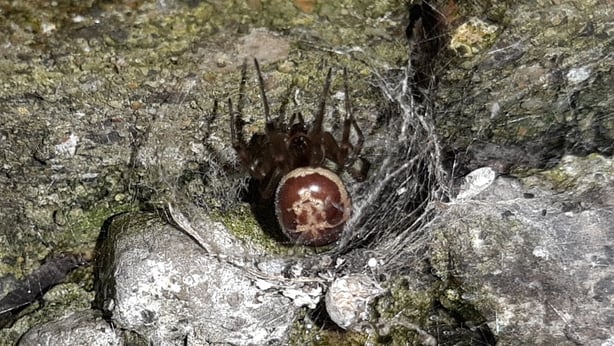New research on a venomous spider found in Ireland shows that it can deliver a more toxic bite than previously thought.
Scientists at NUI Galway have been working with colleagues in Belgium to investigate the genetic make-up of the Noble False Widow spider.
It originated in the Canary Islands and Medeira but has been spreading worldwide in the last two decades.
In parts of Ireland and the UK it is one of the most common species of spiders found in urban settings.
Venomous bites are said to becoming more prevalent, with victims usually experiencing intense pain and swelling for a few days. In some cases, malaise and persistent stiffness in limbs is reported.
Researchers found that 111 toxins out of 140 found in the spiders' venom were common to those found in Black widows.

While the discovery will assist healthcare professionals, the study's lead author, John Dunbar, said there was no need for people to fear the false widow.
He said bites from the spider would rarely result in a need for medical treatment.
The research has been published in the journal 'Toxins'.







